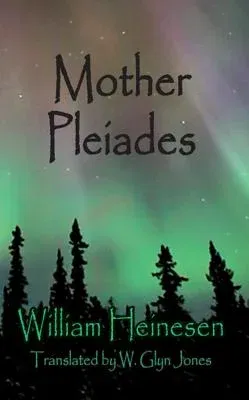William Heinesen
(Author)Mother Pleiades: A Story from the Dawn of TimePaperback, 1 March 2012

Qty
1
Turbo
Ships in 2 - 3 days
Only 3 left
Free Delivery
Cash on Delivery
15 Days
Free Returns
Secure Checkout

Part of Series
Dedalus Europe
Print Length
184 pages
Language
English
Publisher
Dedalus
Date Published
1 Mar 2012
ISBN-10
1907650075
ISBN-13
9781907650079
Description
Product Details
Author:
Book Format:
Paperback
Country of Origin:
US
Date Published:
1 March 2012
Dimensions:
19.56 x
12.45 x
1.52 cm
Genre:
UK Unique
ISBN-10:
1907650075
ISBN-13:
9781907650079
Language:
English
Pages:
184
Publisher:
Series:
Weight:
204.12 gm